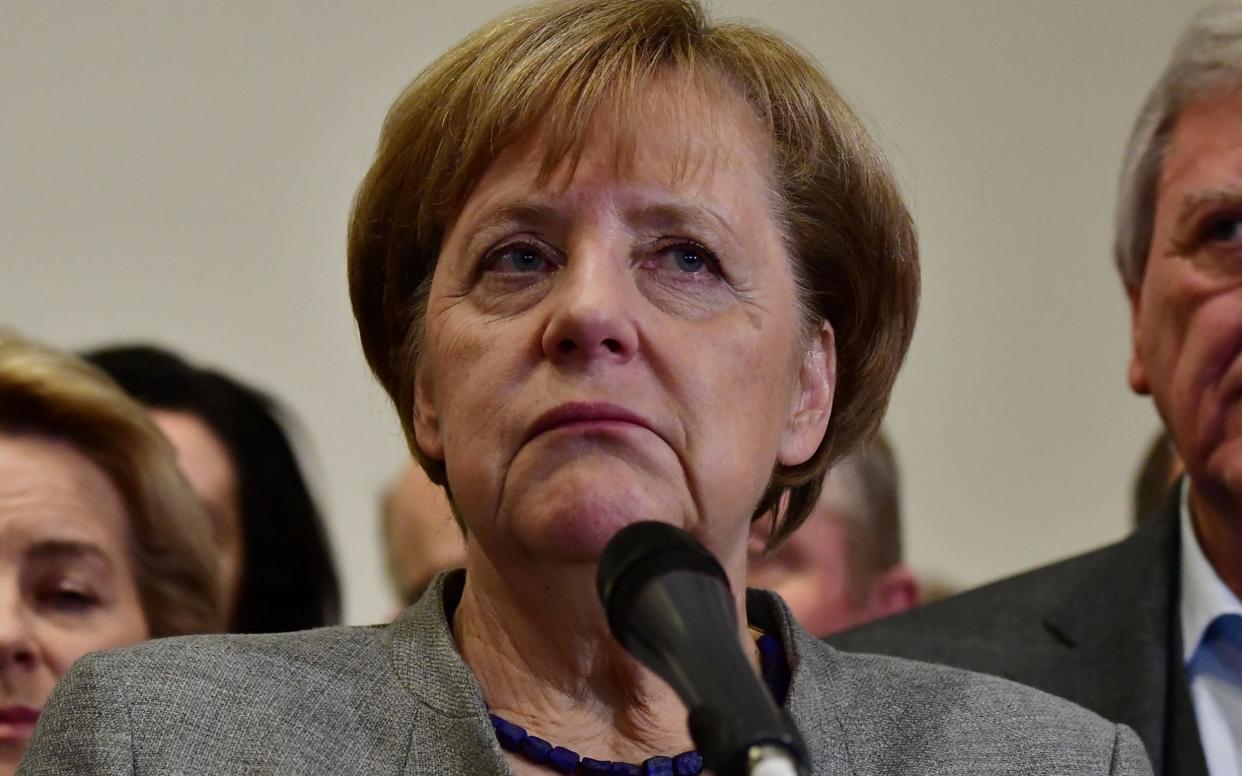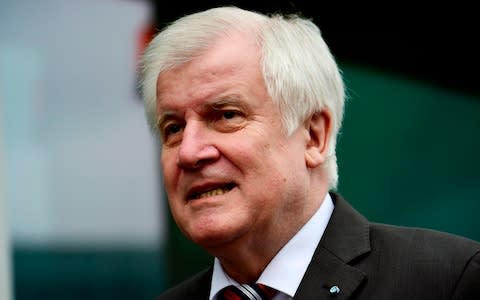Grand coalition 'best option' for Germany, says CSU chief

Hopes were raised for an end to Germany’s political impasse on Sunday, as Horst Seehofer, leader of Angela Merkel's sister CSU party, said a renewed grand coalition is "the best option” for the country.
In a difficult week, chancellor Angela Merkel fought to save her political career and avoid snap elections, after negotiations between her Christian Democrats (CDU) and smaller parties broke down more than four weeks after they began, following Germany’s federal election.
The Social Democrats (SPD) had previously ruled out entering into another “grand coalition” with Mrs Merkel, after it suffered its worst ever result in the elections in September. However Martin Schulz, leader of SPD, back-pedalled and offered Mrs Merkel talks on Friday.
Mr Seehofer has said he welcomes the U-turn. "An alliance between the conservatives and the SPD is the best option for Germany, better in any case than ‘Jamaica', new elections, or a minority government," Mr Seehofer told the Bild am Sonntag newspaper on Sunday.

Speaking about the previous grand coalition, Mrs Merkel said at a party conference on Saturday: “We did a good job. We worked well together.” Talks with the SPD, which will begin on Sunday evening, will be based on "mutual respect" and "compromise", Mrs Merkel said.
The Young Union (JU), the joint youth organisation of the two conservative Union parties, has said Mrs Merkel, Mr Seehofer and Mr Schulz have until Christmas to form a grand coalition. "If there is no agreement between CDU, CSU and SPD by this time, the negotiations are to be regarded as failed," it decided on Saturday, according to Bild am Sonntag.
The head of the youth organization – which wields clout over the parties and claims to be the largest youth political organisation in Europe, with around 120,000 members – Paul Ziemiak, told the Bild newspaper: "If the SPD does not agree, the Union must seek a minority government." A grand coalition should not exist at any price, he said.
The German public are also apparently in favour of such a coalition, with 52 percent saying they would like a repeat, according to an Emnid survey for the Bild newspaper.
Failed talks between the conservative Union parties, the pro-business Free Democrats (FDP) and the left-leaning Greens – dubbed the ‘Jamaica’ coalition because the party colours match those of the Jamaican flag – broke down when the FDP stormed out of discussions last week, citing irreconcilable differences.
German election results: Potential ways to coalition government
But Mrs Merkel said on Saturday that she is determined to get a new government in place as soon as possible to avoid fresh elections, which she fears could strengthen the far-right Alternative for Germany (AfD) party.
AfD has claimed credit for the political turmoil, which has left Mrs Merkel’s authority diminished and created instability in Europe’s largest economy. The anti-immigration party has said it is proof of its growing power to upend the political order, after it entered parliament for the first time in the September elections, to become the third largest party.
"It's all downhill for Merkel now and that is partly our achievement," Alexander Gauland, AfD top candidate, told Agence France Presse (AFP). "Her time is up – we want her to leave the political stage," he said.
The far-right politician, known for his trademark tweed jackets and reading glasses, styled in the manner of an English gentleman, confidently added that in the event of a new election AfD “would probably make gains."
But Mrs Merkel doesn’t want to give him the chance. Successful negotiations for a new coalition government would stave off the threat of elections. “Europe needs a strong Germany... that's why it is important to form a government very soon," she said.
German president Frank-Walter Steinmeier will host the first round of talks between Merkel, Seehofer and Schulz on Thursday. Mrs Merkel will hope the new coalition discussions will return stability to Germany and end the country's political turmoil.

